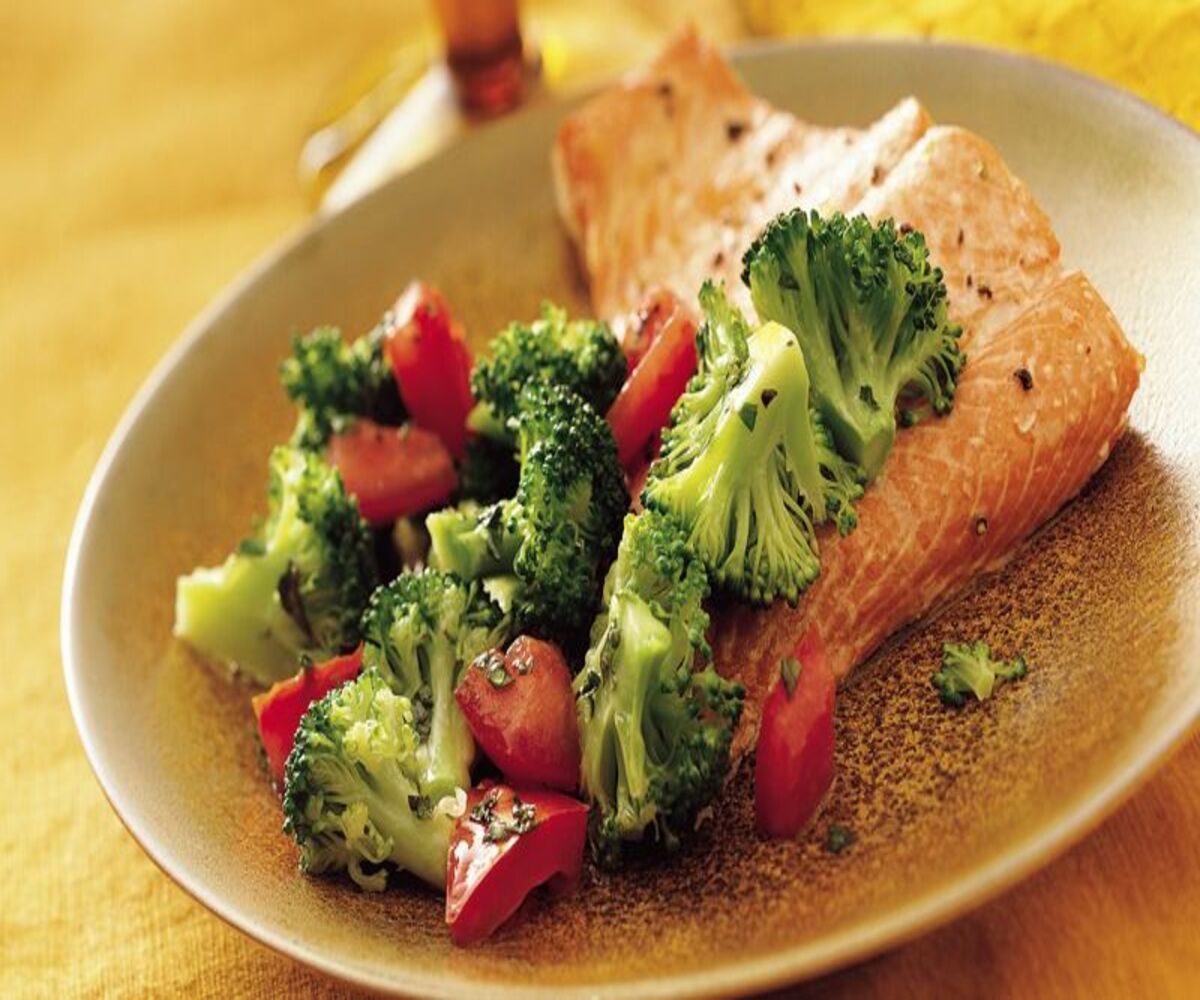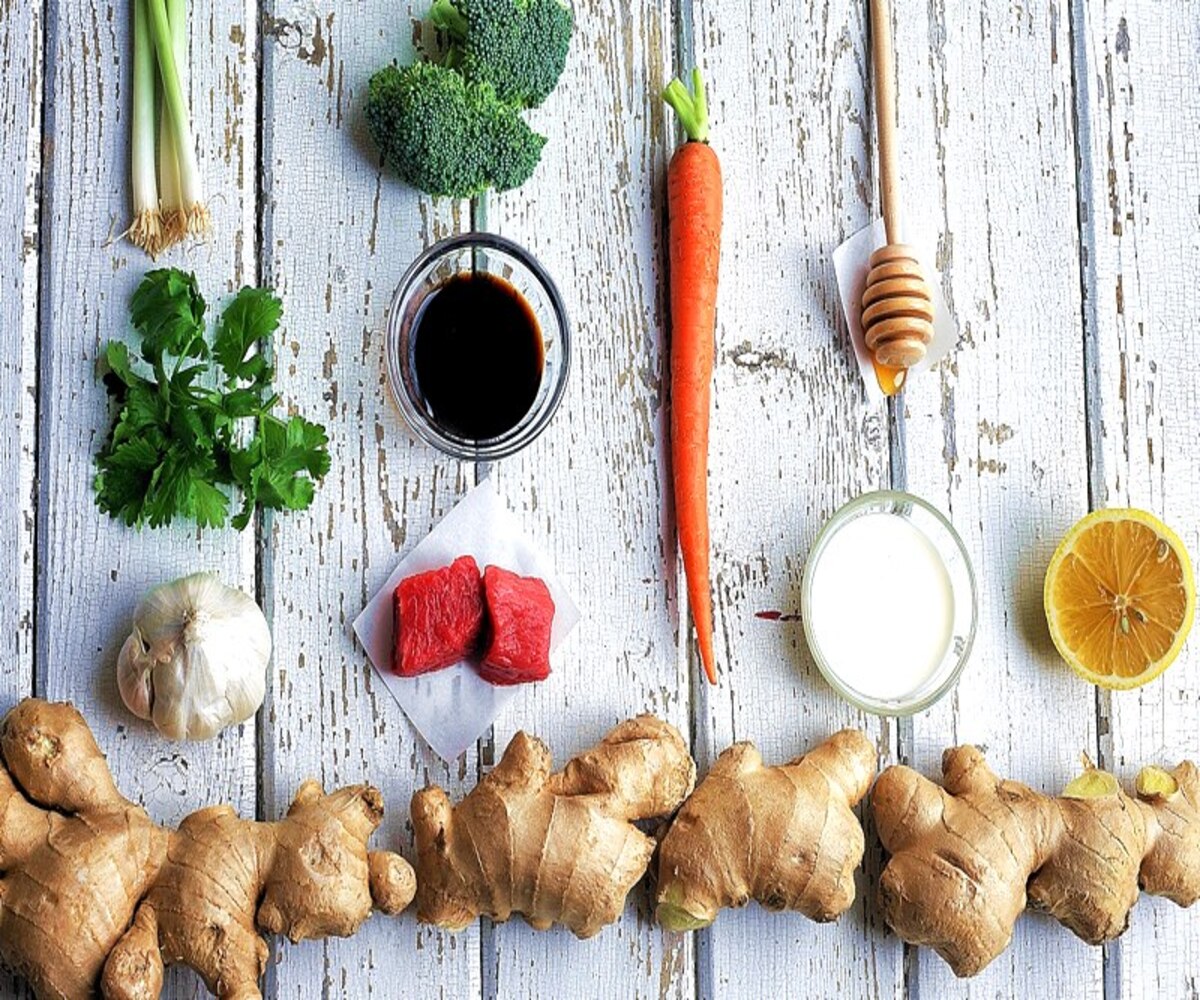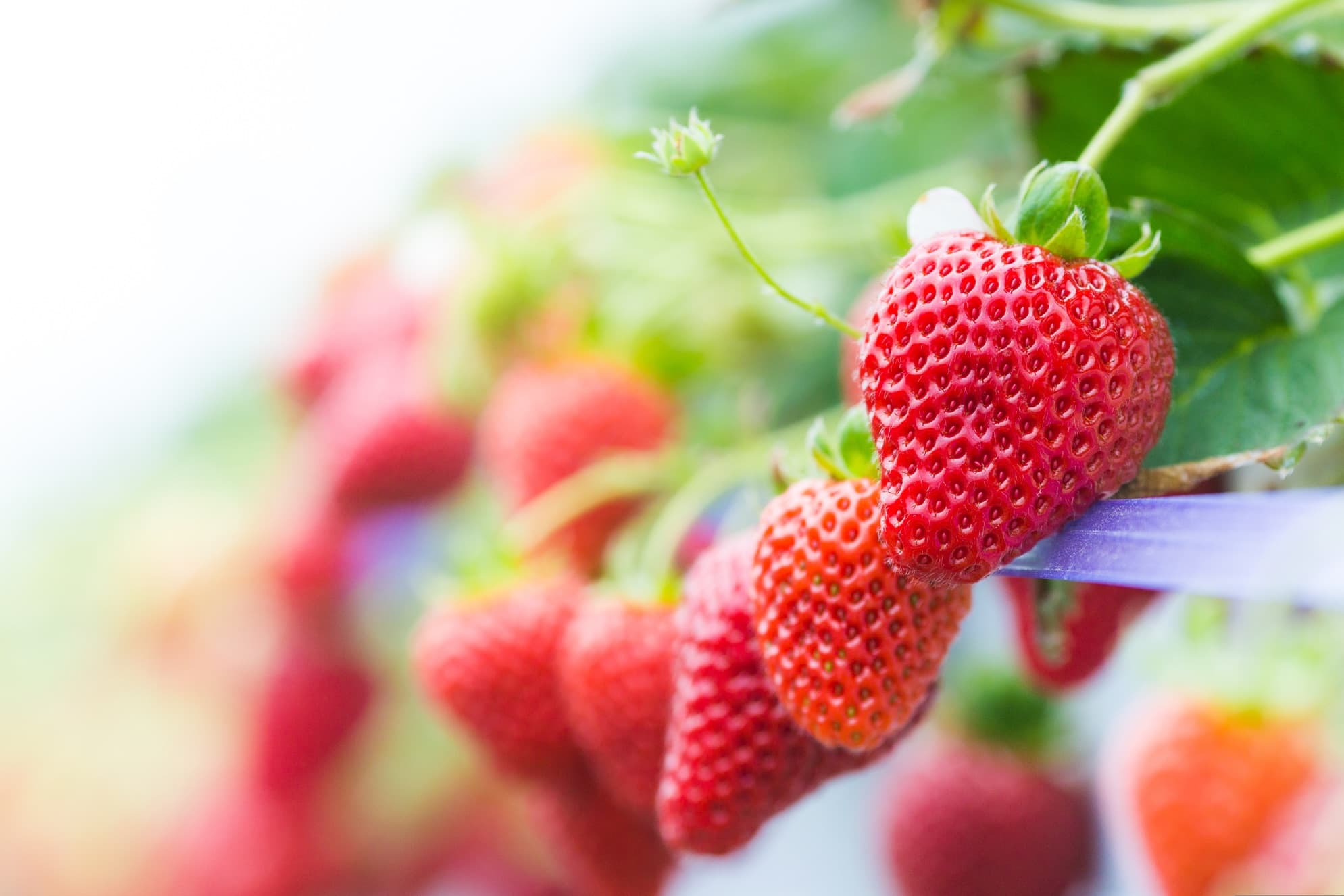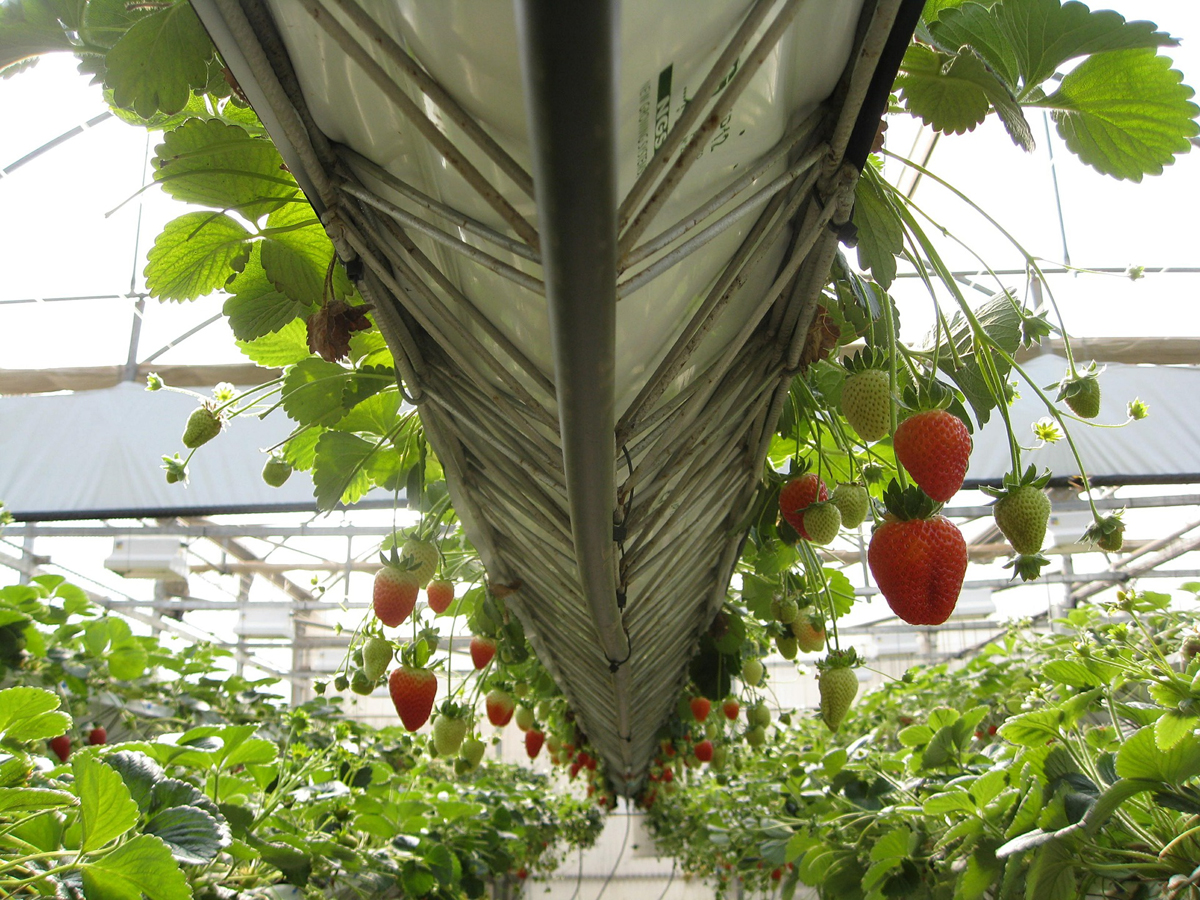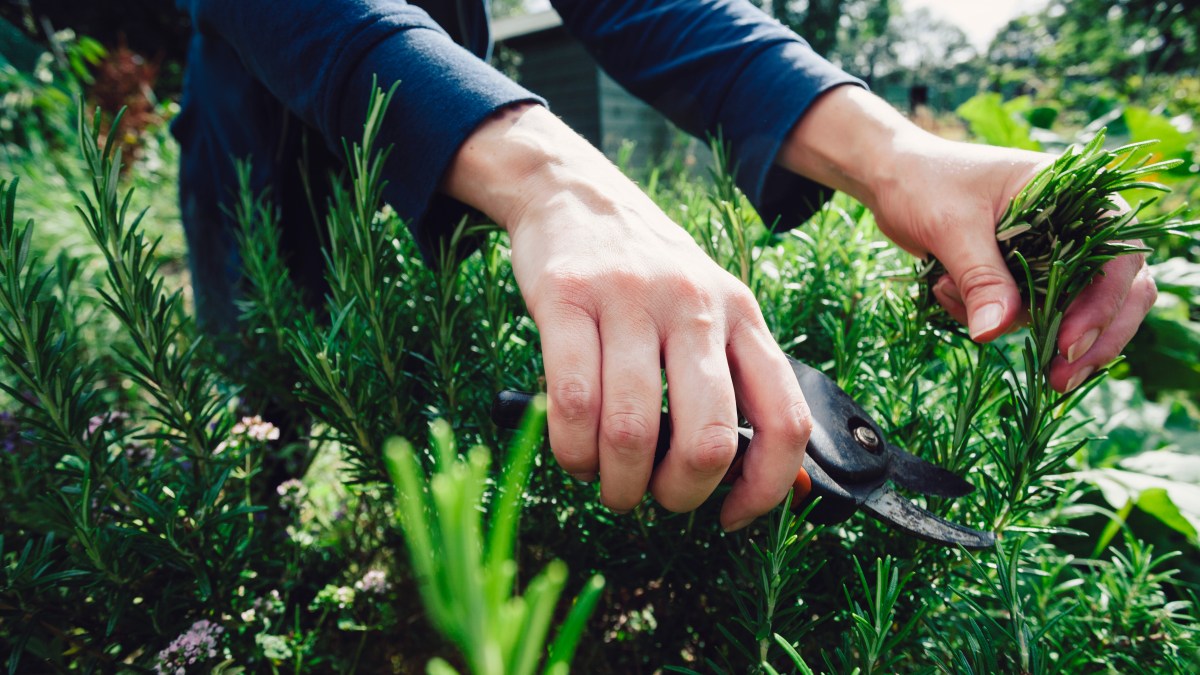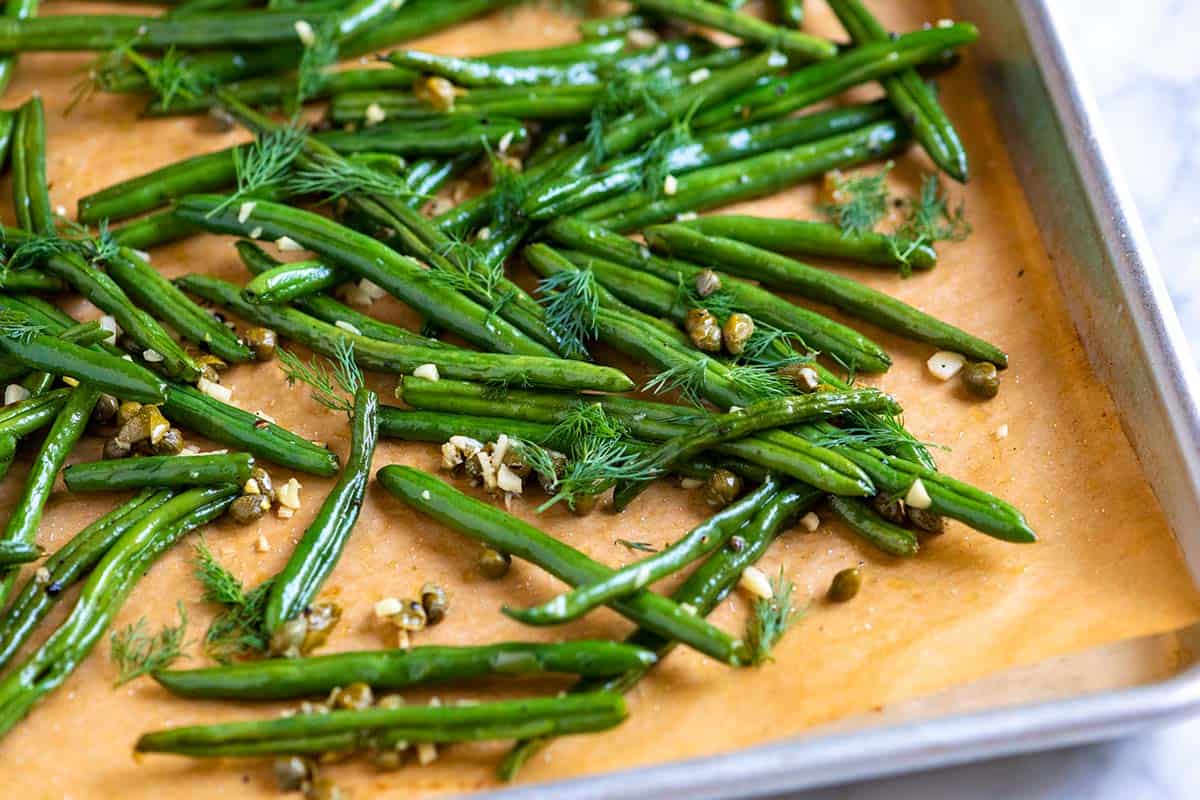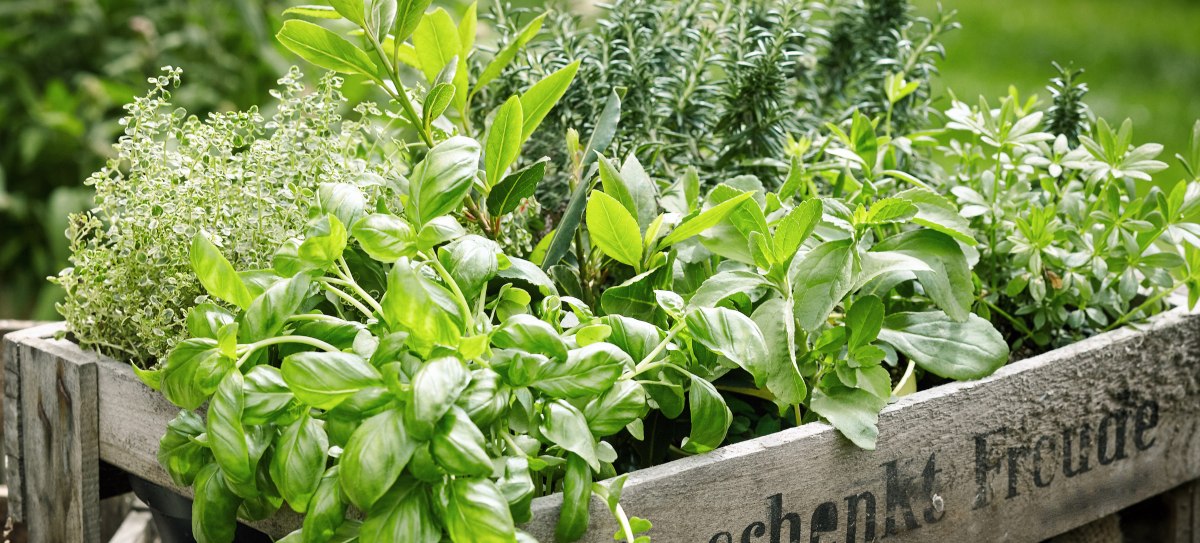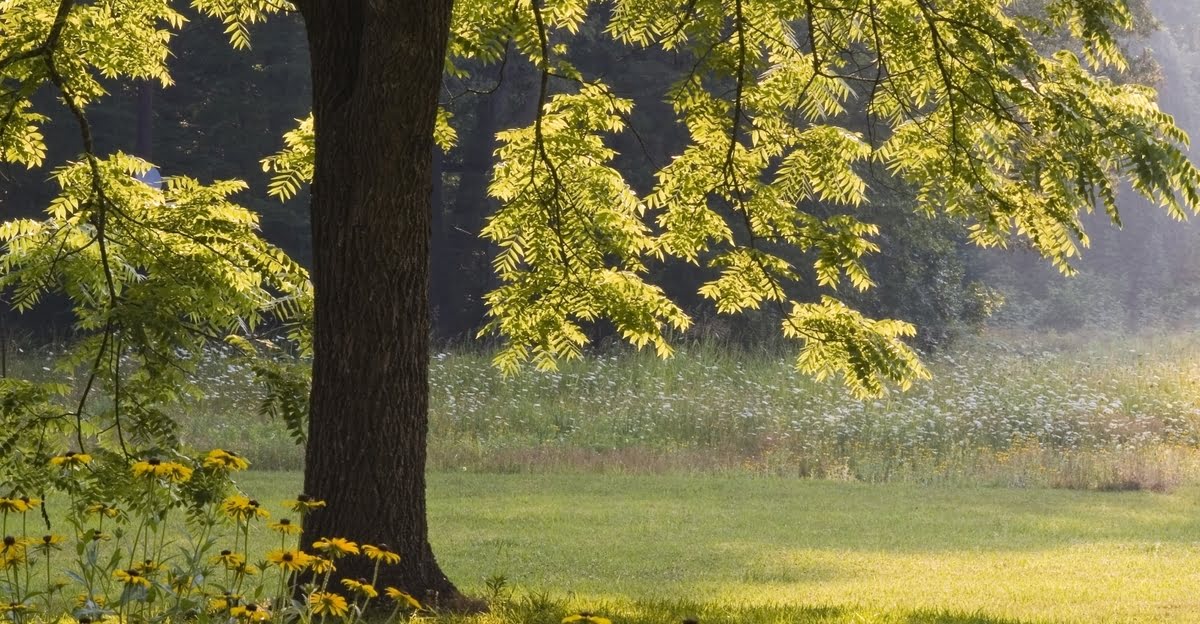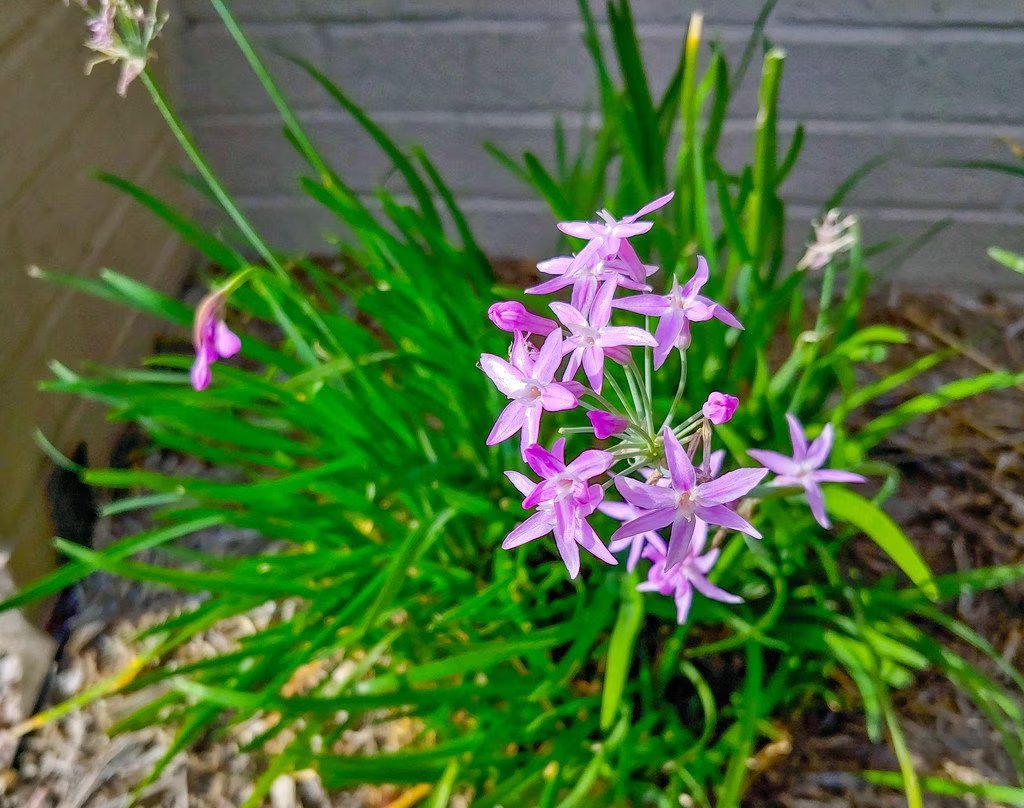Home>Gardening News and Trends>Gardening Trends>What Herbs Grow Well With Strawberries
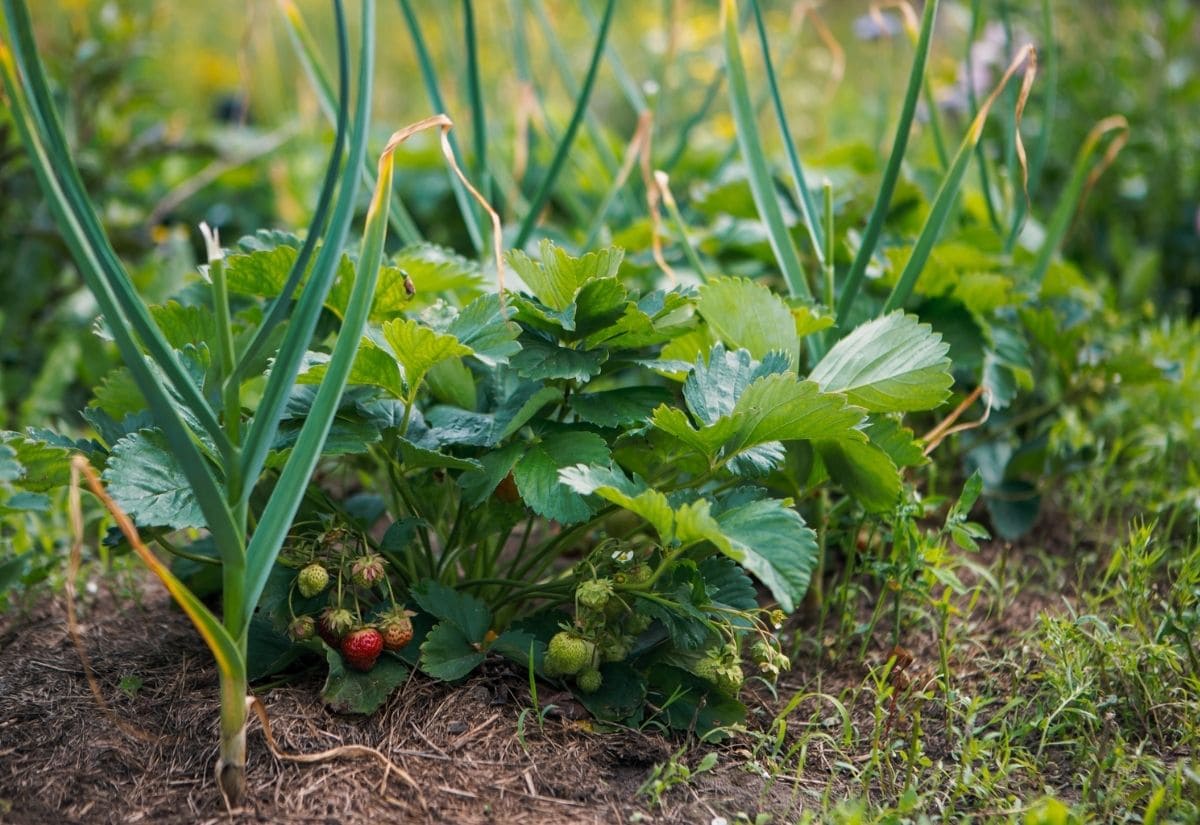

Gardening Trends
What Herbs Grow Well With Strawberries
Modified: January 22, 2024
Enhance your gardening with these trendy herb pairings. Discover the best herbs that thrive alongside strawberries for a bountiful harvest.
(Many of the links in this article redirect to a specific reviewed product. Your purchase of these products through affiliate links helps to generate commission for Chicagolandgardening.com, at no extra cost. Learn more)
Table of Contents
Introduction
Strawberries are a delightful addition to any garden, offering vibrant colors and sweet flavors during the summer months. But did you know that growing herbs alongside your strawberry plants can enhance their growth and flavor? It’s true! The practice of companion planting herbs and strawberries is gaining popularity, not only for its aesthetic appeal but also for the numerous benefits it brings to the garden.
When herbs are planted alongside strawberries, they can attract beneficial insects, improve soil health, and even enhance the taste of the berries themselves. The combination of the fragrant herbs and succulent strawberries creates a harmonious and fruitful garden environment.
In this article, we will explore the benefits of growing herbs with strawberries, discuss the best herbs to pair with your strawberry plants, and provide essential care tips for maintaining a successful herb-strawberry garden combo. Whether you’re a seasoned gardener or just starting out, this information will help you elevate your gardening game and create a beautiful and thriving garden space.
So, let’s dive in and discover the wonderful world of companion planting herbs with strawberries!
Benefits of Growing Herbs with Strawberries
Companion planting herbs with strawberries offers a range of benefits that not only contribute to the health and productivity of your garden but also enhance your overall gardening experience. Let’s explore some of the key advantages of this symbiotic relationship:
- Natural Pest Control: One of the main benefits of growing herbs alongside strawberries is the natural pest control they provide. Certain herbs, such as basil, rosemary, and thyme, emit strong scents that repel common garden pests like aphids, spider mites, and slugs. This helps protect your strawberry plants from potential damage and reduces the need for chemical pesticides.
- Better Soil Health: Herbs are known for their ability to enhance soil health by attracting beneficial insects, improving soil structure, and adding essential nutrients. When planted together, herbs and strawberries create a diverse ecosystem that promotes healthy microbial activity, prevents soil erosion, and increases nutrient availability, resulting in healthier and more productive strawberry plants.
- Improved Flavor and Aroma: The aromatic compounds released by certain herbs can transfer to the strawberries, enhancing their flavor and aroma. For example, planting mint or lemon balm near your strawberry patch can infuse a subtle minty or citrusy note into the berries, creating a unique and delightful taste experience.
- Pollination Assistance: Some herbs, such as lavender and borage, attract pollinators like bees and butterflies. These beneficial insects play a crucial role in pollinating strawberry flowers, leading to better fruit set and increased yields. By planting these herbs alongside your strawberries, you create a welcoming environment for pollinators, ensuring a bountiful harvest.
- Aesthetic Appeal: Combining herbs and strawberries in your garden not only adds functionality but also enhances the visual appeal. The contrasting textures, colors, and growth habits of herbs and strawberry plants create a visually captivating and dynamic garden bed that can be enjoyed throughout the growing season.
By taking advantage of these benefits, you can create a harmonious and productive garden space that not only provides you with an abundant strawberry harvest but also offers a visually stunning and ecologically balanced oasis.
Best Herbs to Grow with Strawberries
Choosing the right herbs to grow alongside your strawberries is essential for creating a thriving and complementary garden bed. Here are some of the best herbs that pair well with strawberries:
- Basil: This aromatic herb not only repels pests but also enhances the flavor of strawberries. Plant basil near your strawberry plants to experience the delightful combination of basil’s sweet and slightly peppery notes with the natural sweetness of the berries.
- Thyme: With its woody scent, thyme acts as a natural deterrent for garden pests. Additionally, the aroma of thyme can infuse a subtle earthy undertone into your strawberries, making for a unique culinary experience.
- Mint: Mint is a great companion for strawberries as it repels pests and adds a refreshing twist to their flavor. Plant different varieties of mint, such as spearmint or peppermint, near your strawberry plants to enjoy the fragrant and cooling taste of mint-infused strawberries.
- Chives: Chives not only add a touch of beauty to your garden with their delicate purple flowers but also deter aphids and other pests that may plague your strawberries. Additionally, the mild onion-like flavor of chives complements the sweetness of strawberries, making them a perfect pair for fruit salads or desserts.
- Rosemary: Known for its strong scent, rosemary is an excellent herb to plant near strawberries to repel pests like aphids and spider mites. The unique pine-like flavor of rosemary also adds a hint of complexity to the taste of strawberries.
- Lemon Balm: Lemon balm not only attracts pollinators but also imparts a subtle lemony flavor to strawberries, giving them a refreshing and citrusy twist. The bright green foliage of lemon balm also adds a vibrant touch to your garden bed.
These are just a few examples of herbs that pair well with strawberries. Depending on your taste preferences and local growing conditions, you may also consider other herbs such as oregano, parsley, or sage. Experimenting with different combinations will allow you to discover unique flavor profiles and find your favorite herb-strawberry pairings.
Caring for Herbs and Strawberries Together
Successfully growing herbs and strawberries together requires proper care and attention. Here are some essential tips to help you maintain a healthy and productive herb-strawberry garden:
- Planting Location: Choose a sunny spot in your garden for both your herbs and strawberry plants. Most herbs require full sun to thrive, while strawberries also benefit from ample sunlight for optimal fruit production.
- Soil and Drainage: Herbs and strawberries prefer well-draining soil. Ensure that the soil is rich in organic matter, and if needed, amend it with compost or aged manure to improve fertility and drainage.
- Watering: Proper watering is crucial for the health of both herbs and strawberries. While strawberries prefer consistently moist soil, herbs like mint can tolerate slightly drier conditions. Water regularly, aiming to keep the soil evenly moist but not waterlogged.
- Mulching: Apply a layer of organic mulch around your herbs and strawberry plants to help regulate soil temperature, suppress weeds, and retain moisture. Straw, shredded leaves, or wood chips make excellent mulching materials.
- Pruning and Harvesting: Regularly prune your herbs to promote bushier growth and prevent them from overshadowing the strawberry plants. Harvest herbs regularly to encourage new growth and maintain their flavor and aroma. When harvesting strawberries, gently twist and lift the fruit to avoid damaging the plants.
- Fertilization: Herbs generally require less fertilization than strawberries. Apply a balanced slow-release fertilizer to the soil around your strawberry plants in early spring, following the recommended dosage instructions. Avoid over-fertilizing, as this can lead to excessive foliage growth at the expense of fruit production.
- Pest and Disease Control: Monitor your herb and strawberry plants regularly for any signs of pests or diseases. Keep a lookout for aphids, slugs, and fungal infections. If necessary, use organic pest control methods such as handpicking pests, applying insecticidal soap, or using companion plants that repel pests.
By following these care tips, your herb and strawberry plants will thrive together, creating a harmonious and productive garden bed.
Companion Planting Strategies for Herb-Strawberry Gardens
Companion planting is all about utilizing the natural synergies between different plants to create a balanced and harmonious garden ecosystem. When it comes to herb-strawberry gardens, there are a few companion planting strategies you can employ to maximize the benefits and productivity of both plants:
- Interplanting: Plant herbs and strawberries in close proximity to each other within the same garden bed. This allows for easy access to both plants and encourages cross-pollination and beneficial interactions.
- Row Planting: Create alternating rows of herbs and strawberry plants. This arrangement not only optimizes space utilization but also creates a visually appealing pattern in your garden. It also allows for easier maintenance and harvesting of both plants.
- Border Planting: Use herbs as border plants around your strawberry patch. This not only adds aesthetic appeal but also acts as a natural pest barrier, as many herbs have fragrances that repel common garden pests.
- Sequential Planting: Plant herbs and strawberries in rotation, staggering their growth and harvest periods. This ensures a continuous supply of fresh herbs and strawberries throughout the growing season.
- Vertical Gardening: Consider utilizing vertical gardening techniques, such as trellises or hanging baskets, to grow trailing herbs like mint, thyme, or rosemary alongside hanging strawberry plants. This maximizes space utilization and creates a visually stunning display.
- Complementary Pairings: Pair herbs with specific strawberry varieties to enhance taste combinations. For example, pairing lemon balm with alpine strawberries can create a delightful citrus-infused flavor, while pairing basil with sweet strawberries can create a unique savory-sweet contrast.
- Beneficial Attractors: Plant herbs that attract beneficial insects, such as lavender or borage, near your strawberry patch. These insects will not only benefit the herbs but also aid in pollination, improving strawberry yields.
By employing these companion planting strategies, you can create a balanced and bountiful herb-strawberry garden that maximizes the benefits of both plants. Experiment, have fun, and discover the combinations that work best for your garden and taste preferences.
Conclusion
Combining herbs and strawberries in your garden is a winning recipe for a beautiful and productive garden bed. Not only does companion planting offer various benefits such as natural pest control, improved soil health, and enhanced flavor, but it also creates an aesthetically pleasing and harmonious garden space.
By choosing the right herbs to grow alongside your strawberries, such as basil, rosemary, mint, and thyme, you can create delightful flavor combinations and repel pests naturally. Caring for both herbs and strawberries involves providing adequate sunlight, well-draining soil, regular watering, and proper maintenance through pruning and harvesting.
Employing companion planting strategies such as interplanting, row planting, border planting, sequential planting, and vertical gardening allows you to optimize space usage, enhance visual appeal, and create a more diverse and balanced garden ecosystem. Additionally, considering complementary pairings and attracting beneficial insects further enhances the benefits of growing herbs and strawberries together.
So, whether you’re a seasoned gardener or just starting out, don’t miss the opportunity to experience the joys of companion planting herbs with strawberries. Connect with nature, elevate your gardening skills, and delight in the abundant harvest and vibrant flavors that await you in your very own herb-strawberry garden.
